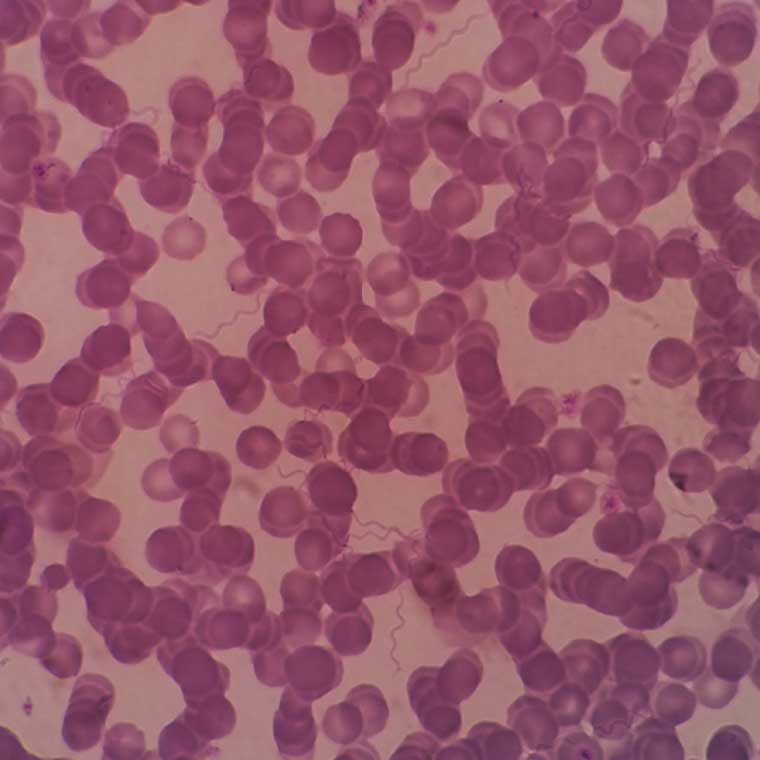
Lymecheck test for the diagnosis of Lyme disease
Blood test focused on the diagnosis of Lyme disease. This test allows the combination of different state-of-the-art diagnostic techniques that make it possible to determine the state of the patient's cellular and humoral immunity against different pathogens.
The tests are carried out in our laboratory LymeCheck Lab (lab@lymecheck-lab.com) The new, state-of-the-art laboratory specialises in the accurate and precise diagnosis of Lyme disease.
The main techniques of this test are:
- Elispotreflects current pathogen activity by detecting the production of Interferon gamma (IFN-γ) associated with an acute or active infection.
- iSpotT-cells and the secretion of Interferon gamma and Interleukin 2 (IFN-γ/IL-2) are analysed to gain information about cell-mediated immunity in chronic infections. IL-2 represents the memory function of the immune system and thus represents convalescence.
- CD3+/CD56+/CD57+ and CD19+ cells: provides important information on current health status with a detailed overview of the humoral immune system. They may be increased in chronic viral infections such as CMV, HIV, hepatitis C and Epstein-Barr virus; and decreased in cellular immune deficiencies.
- ELISA, Western blot, SeraSpotSerological tests are serological tests for the diagnosis of infectious diseases. They allow the identification of antibodies or antigens.
Lyme disease, also known as Lyme borreliosis, is an infectious disease transmitted to humans by different species of ticks that are infected by different species of spirochetes of the genus Borrelia that produce different clinical pictures, the most relevant being Borrelia burgdorferi, B. miyamotoi, B. afzelii and B. garinii. In addition to this, it is very important to correctly diagnose possible co-infections that may accompany these bacteria, such as: Mycoplasma pneumoniae, Chlamydia pneumoniae, Babesia, Bartonella, Rickettsia, Ehrlichia / Anaplasma, Herpes Virus type 6, Cytomegalovirus, Epstein Barr Virus.....
The technique Elispot measures the cell-mediated immune response, through the production of Interferon gamma (IFN-γ). EliSpot provides insight into the T-cell mediated immune response in a variety of infections. Its high sensitivity and specificity make it a valuable tool in the diagnosis and monitoring of infectious diseases.
The technique iSpot for the diagnosis of chronic infections and their evolution during treatment. Specifically, it involves isolating lymphocytes from the patient's blood, activating them with specific antigens of the infections we wish to diagnose and, after an incubation period of several hours, quantifying in the same well, and therefore with the same lymphocytes, the production of IFNgamma and IL-2 against each infection we analyse individually. This analytical procedure allows us not only to quantitatively determine the level of activation of the patient's T lymphocytes against the infections studied, but also at different times of treatment, the response to treatment and its monitoring, which is essential for a good selection of the most effective antibiotics according to the lymphocyte response.
Once the samples arrive at Biosalud Day Hospital, we will analyse them and when we have them we will send them to you by email along with our recommendations.
- Approximate time of results:
- Optimal analysis for:
Lyme disease, also known as Lyme borreliosis, is an infectious disease transmitted to humans by different species of ticks that are infected by different species of spirochetes of the genus Borrelia that produce different clinical pictures, the most relevant being Borrelia burgdorferi, B. miyamotoi, B. afzelii and B. garinii. In addition to this, it is very important to correctly diagnose possible co-infections that may accompany these bacteria, such as: Mycoplasma pneumoniae, Chlamydia pneumoniae, Babesia, Bartonella, Rickettsia, Ehrlichia / Anaplasma, Herpes Virus type 6, Cytomegalovirus, Epstein Barr Virus.....
The technique Elispot measures the cell-mediated immune response, through the production of Interferon gamma (IFN-γ). EliSpot provides insight into the T-cell mediated immune response in a variety of infections. Its high sensitivity and specificity make it a valuable tool in the diagnosis and monitoring of infectious diseases.
The technique iSpot for the diagnosis of chronic infections and their evolution during treatment. Specifically, it involves isolating lymphocytes from the patient's blood, activating them with specific antigens of the infections we wish to diagnose and, after an incubation period of several hours, quantifying in the same well, and therefore with the same lymphocytes, the production of IFNgamma and IL-2 against each infection we analyse individually. This analytical procedure allows us not only to quantitatively determine the level of activation of the patient's T lymphocytes against the infections studied, but also at different times of treatment, the response to treatment and its monitoring, which is essential for a good selection of the most effective antibiotics according to the lymphocyte response.
- Type of sample:
Once the samples arrive at Biosalud Day Hospital, we will analyse them and when we have the results we will send them to you by email along with our recommendations.
- Example of results:
FAQs
No results found.
